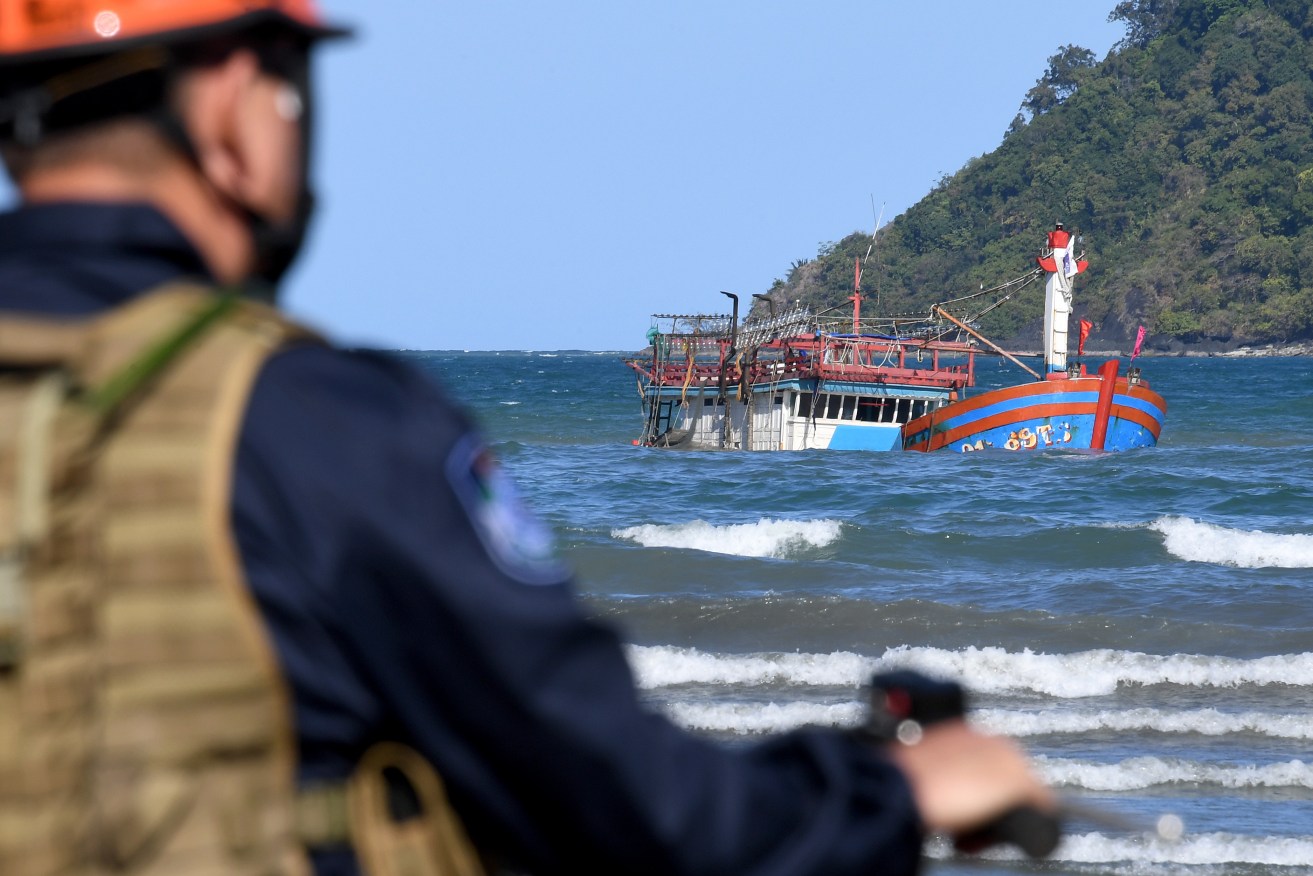Asylum seekers reflect on decade of offshore detention

Asylum seekers are reflecting on the 10-year anniversary of Kevin Rudd's announcement about offshore detention. Photo: AAP
Elnaz and Ella were not yet teenagers when they joined their parents on a rickety boat bound for Australia.
The sisters, who did not want their surname published due to personal safety fears, sailed into a political storm over asylum seekers.
They arrived just weeks after Kevin Rudd announced a 2013 deal to send all boat arrivals to offshore detention.
No asylum seeker who arrived by boat would be allowed to settle in Australia.
Aged 10 and 12 at the time, the girls spent several months on Christmas Island before being transferred to Nauru.
Ella described her time in the camp as an “abnormal situation”.
“We only had three minutes to shower with an officer counting us down before closing off the taps abruptly,” she told AAP.
“I remember all the screams and shouting.
“And that was once every week or two, so sometimes we had go to without showering for weeks.”
Elnaz said surviving the rugged terrain and wildlife on Nauru was incredibly tough.
“Food wasn’t even the priority,” she said.
“We had to deal with safety, not the people around you, but wildlife.
“We used to see these really big spider crabs and scorpions in our tents which you’d think belong in a zoo but they’re just out and about so you had to look out for yourself.”
With frustrations over living conditions often spilling into fights between detainees and guards, camp health workers regularly sedated detainees, including children.
“I was 11 or 12 when I was offered this anti-depressant but I never actually took it,” Elnaz said.
“Whenever we were sent to the psychologist, they would tell us ‘we can’t really do anything about the situation’ and would just say here’s some meds or breathe when you’re going through a panic attack.”
The sisters, now aged in their twenties, were escaping persecution in Iran when they made the perilous journey to Australia.
They are members of the Ahwazi community, an Arabic-speaking minority of about one million people which has long been discriminated against.
The young women were eventually transferred to the Australian mainland and placed in community detention.
They have completed high school studies in Melbourne but must adhere to a strict curfew and are prevented from working or studying.
Both sisters still feel trapped.
“I was 12 when I came and now I’m 22 years old so basically my whole life I’ve been in this prison,” Ella said.
Wednesday marks the 10-year anniversary of Kevin Rudd’s offshore detention announcement.
Thanush Selvarasa arrived a week after the policy took effect and spent more than six years on Manus Island in Papua New Guinea.
“I’ve lost friends of mine on that prison island,” the 32-year-old told AAP.
He raised the death of Reza Barati, an Iranian asylum seeker killed during a 2014 riot, as a reflection of detainees being treated as disposable.
“They treated us like prisoners,” he said.
“We weren’t called by our names, we were called by numbers.
“I still get excited when someone calls me by own name.”
More than 3000 people have been detained in Nauru and Papua New Guinea over the last decade.
Australia has removed all asylum seekers from Nauru but will keep the empty centre open at a cost of $350 million per year.
About 80 asylum seekers remain in Papua New Guinea.
“After 10 years of resistance and community pressure, the politics of fear and division that led to offshore detention are weakening but must end,” the Asylum Seeker Resource Centre said.
The Department of Home Affairs said its policies towards asylum seekers who arrived by boat had not changed; they would be transferred and processed in offshore facilities and offered no chance to resettle in Australia.
There are also more than 1100 people in immigration detention across Australia.
Mr Selvarasa, who lives in Sydney on a bridging visa he must renew every six months, urged the government to rethink its approach.
“Please give refugees the permission to restart their lives after 10 years,” he said.
“We can’t live with more pain.”
Lifeline 13 11 14
beyondblue 1300 22 4636
– AAP








